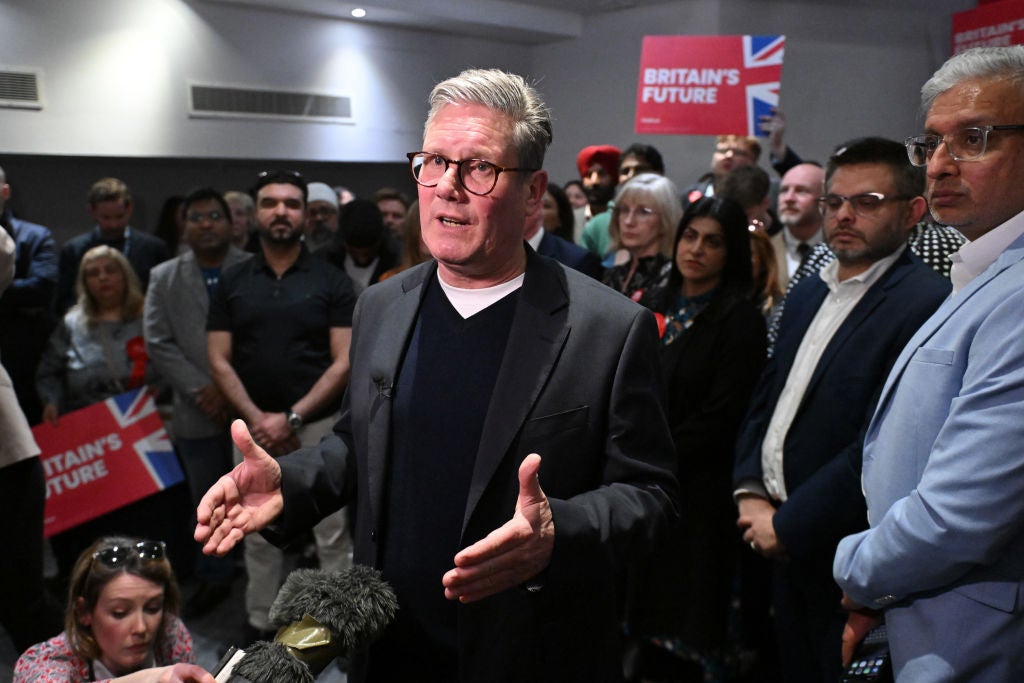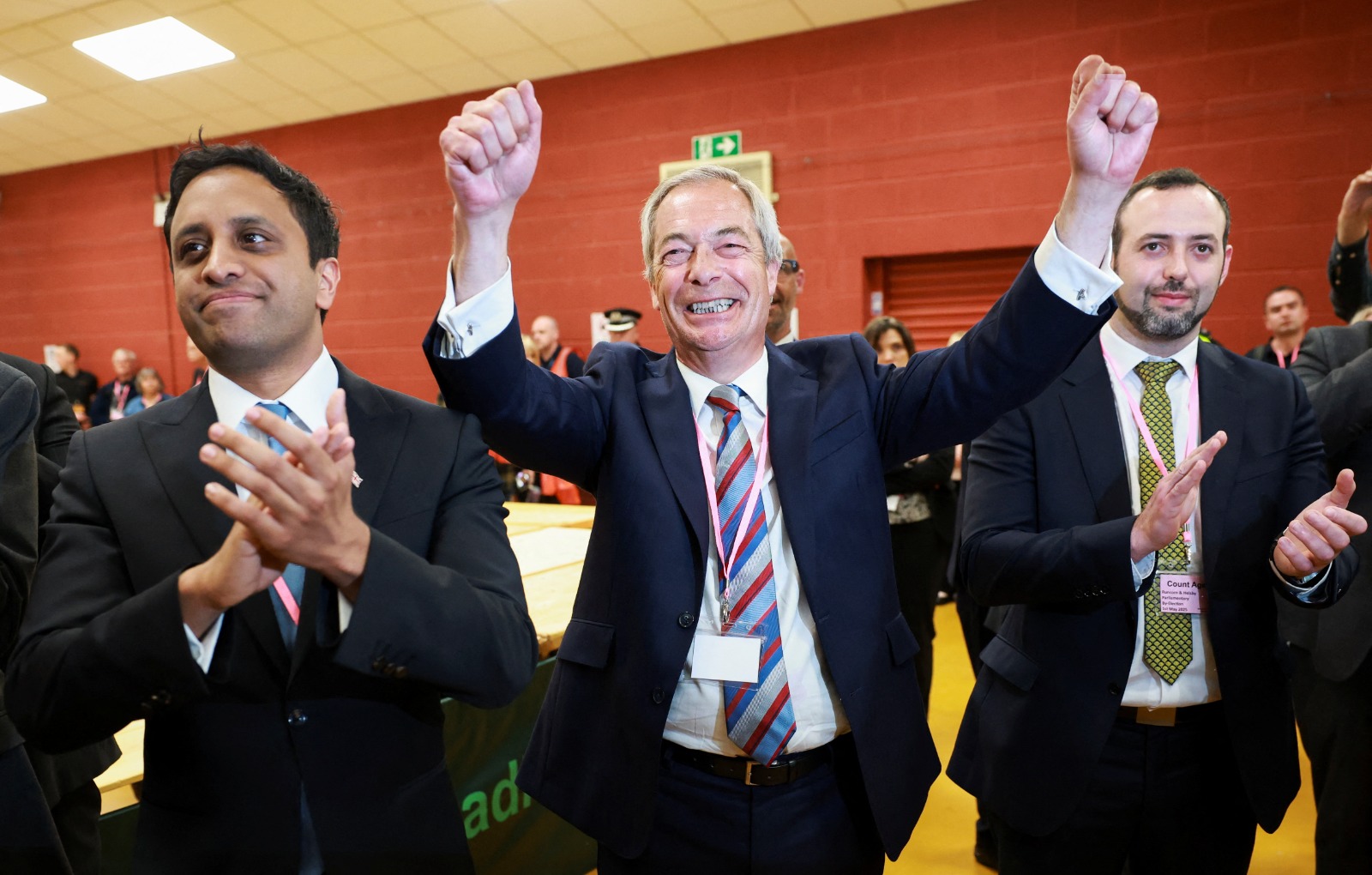Populist Uprising: How Reform UK Party Made a Major Breakthrough in the Political System

“Labour and the Conservatives both lost hundreds of local council seats in this year’s elections.”
In a shift that holds profound implications for the future of British politics, right-wing populist party, Reform UK, made unprecedented gains in the local elections held in early May.
It captured an additional seat in Parliament, dealing a double blow to both the governing Labour Party and the opposition Conservatives.
Across the country, Reform won 30% of the vote, ahead of Labour on 20%, followed by the Liberal Democrats with 17%, and the Conservatives with just 15%.
These results, although at the local level, herald a redrawing of the British party map, which for decades has been governed by a traditionally stable binary between the Labour and Conservative parties.
Opinion polls show that Britons are disillusioned with the two traditional parties, given weak economic growth, high rates of irregular migration, and declining public services.
For its part, Reform hopes that its victory in several mayoral elections and hundreds of local council seats will boost its popularity ahead of the next general election, likely in 2029.
Populist Uprising
Nigel Farage’s Reform UK has made unprecedented progress in British local elections, threatening the position of both the traditional parties.
These surprising gains come at a time when voices within the Labour Party are calling on its leader, Keir Starmer, to listen to the street, following a decline in popular support in several areas traditionally associated with the party.
Some 1,650 local councillors were elected in 23 councils, with a further six mayoral races and one by-election in Runcorn and Helsby.
Reform entered the local elections this year with zero seats to defend and went on to win 677 council seats, becoming the largest party in 10 local councils for the first time.
It seized control of eight authorities from the Conservatives, including former strongholds Kent and Staffordshire.
It has won control of Doncaster, the only council Labour was defending, and Durham, where Labour was previously the largest party.
As well as winning control of its first-ever councils, Reform has also won its first mayoral contests in the newly-created combined authorities of Greater Lincolnshire, Hull, and East Yorkshire.
In a more symbolic development, Reform displaced Labour in Runcorn and Helsby, where it won a tightly-fought Westminster by-election to make Sarah Pochin its fifth MP.
“For the movement and for the party, it’s a very significant moment,” said the anti-immigration party’s leader, Nigel Farage, of his first by-election victory and Starmer’s first loss since taking office last July.
The Telegraph published a photo of Farage holding up six fingers, symbolizing the six crucial votes that gave his party victory in Runcorn and Helsby.
The Financial Times focused on the Reform Britain party's electoral gains, describing them as a populist uprising similar to those seen in the United States, France, Italy, and Germany.
Popularity Decline
The recent local election results did not bolster confidence in Keir Starmer's leadership of Britain, but rather exposed a broader crisis in the political landscape.
The Conservatives suffered heavy losses, while Labour faced erosion in its popularity, reflecting the accelerating disintegration of voter confidence in the major parties.
Despite taking power, Labour lost 186 seats, and its national support fell to an estimated 20%, the same level as its worst performance in 2009.
Although Labour retained the mayoralty in Doncaster, North Tyneside and the West of England, its vote share declined significantly, even in areas once considered safe havens.
Writing for The Times, Starmer emphasized his government's determination to move further and faster with reforms and change, and his refusal to be swayed by ideological partisanship, accusing Farage of offering easy solutions.
However, according to many in Starmer's party, this change remains questionable, given accusations that his leadership has veered to the right and neglected the poor, particularly with recent austerity policies, such as reducing energy subsidies for the elderly.
In turn, the Conservatives are still reeling from the effects of their ouster from power last year and have suffered other disastrous consequences amid the accumulated public discontent over his long years in power.
The party lost over 676 seats and control of all the 16 authorities it was defending, while his popularity has fallen to just 15%, the lowest level the party has ever recorded, according to the BBC.
But it captured the Cambridgeshire and Peterborough mayoral from Labour - a silver lining for the party in an otherwise dismal set of results.
Writing for the Telegraph, Conservative leader Kemi Badenoch acknowledged the results had been a bloodbath for her party, but argued it had been making progress under her leadership, including on party unity and holding Labour ministers to account.
Liberal Democrat leader Ed Davey said his party had supplanted the Conservatives as the ‘party of Middle England’ after gaining 163 seats.
The party seized Shropshire from the Tories, and gained control of Oxfordshire.
They have also become the biggest party in Hertfordshire and Wiltshire, as well as in Gloucestershire and Devon.
The Greens gained over 40 seats, but would have been disappointed not to snatch the West of England mayoral contest from Labour, where they came a narrow third to Reform.

Electoral Gains
Veteran British politician Nigel Farage has once again made a comeback with his party, widely described as a far-right, populist, anti-immigrant movement influenced by Trumpian rhetoric.
In a speech to supporters in Durham, Farage confidently declared: “This is the beginning of the end of two-party politics in Britain. We are now the real opposition party.”
The i newspaper highlighted the Reform party's plans to cut local council spending, eliminate diversity and inclusion positions on local councils, and ban working from home in public institutions.
Farage has vowed to set up mini-Doge units in councils under the party’s control, similar to Elon Musk’s Department of Government Efficiency in the U.S., with the aim of reducing government spending.
Reform has succeeded in transforming deep social discontent into tangible electoral gains, by targeting segments that once supported Labour but have recently turned away from it after feeling marginalized, particularly the elderly and residents of the north and midlands.
The party's stance on immigration issues, particularly its promise to ban asylum seekers from being housed in provincial hotels, represented the pinnacle of its populist rhetoric.
Despite the limited powers of local councils in this regard, this protest achieved significant political resonance, reflecting a clear challenge to the prevailing liberal discourse.
In this context, Reform is no longer merely a protest phenomenon, but rather a serious political player filling a void left by the major parties and issuing an early warning of the reshaping of the British political landscape.
Reform, which won approximately 14% of the vote in the 2024 general election, currently holds 5 of the 650 seats in the House of Commons, compared to 403 for the Labour and 121 for the Conservatives.

Lawyer Bassam Tablieh explained to Al-Estiklal that “for the first time in more than a century, the combined share of the Labour and Conservative parties has fallen below 50% of the vote, indicating a breakdown in the traditional loyalty of the two parties and a slow shift towards a pluralistic political system.”
“This shift reflects not only a change in electoral preferences, but a profound crisis in the British political structure,” he said.
“It has become clear that the major parties are unable to provide realistic solutions to social and economic pressures, leaving the door open to protest movements that make simplistic promises that resonate widely,” he added.
Mr. Tablieh also pointed out that the true test of the Reform party is no longer at the ballot box, but rather in its ability to manage the local councils it won, noting that failure at this stage could undermine its credibility, while success would open the door to a general election.









